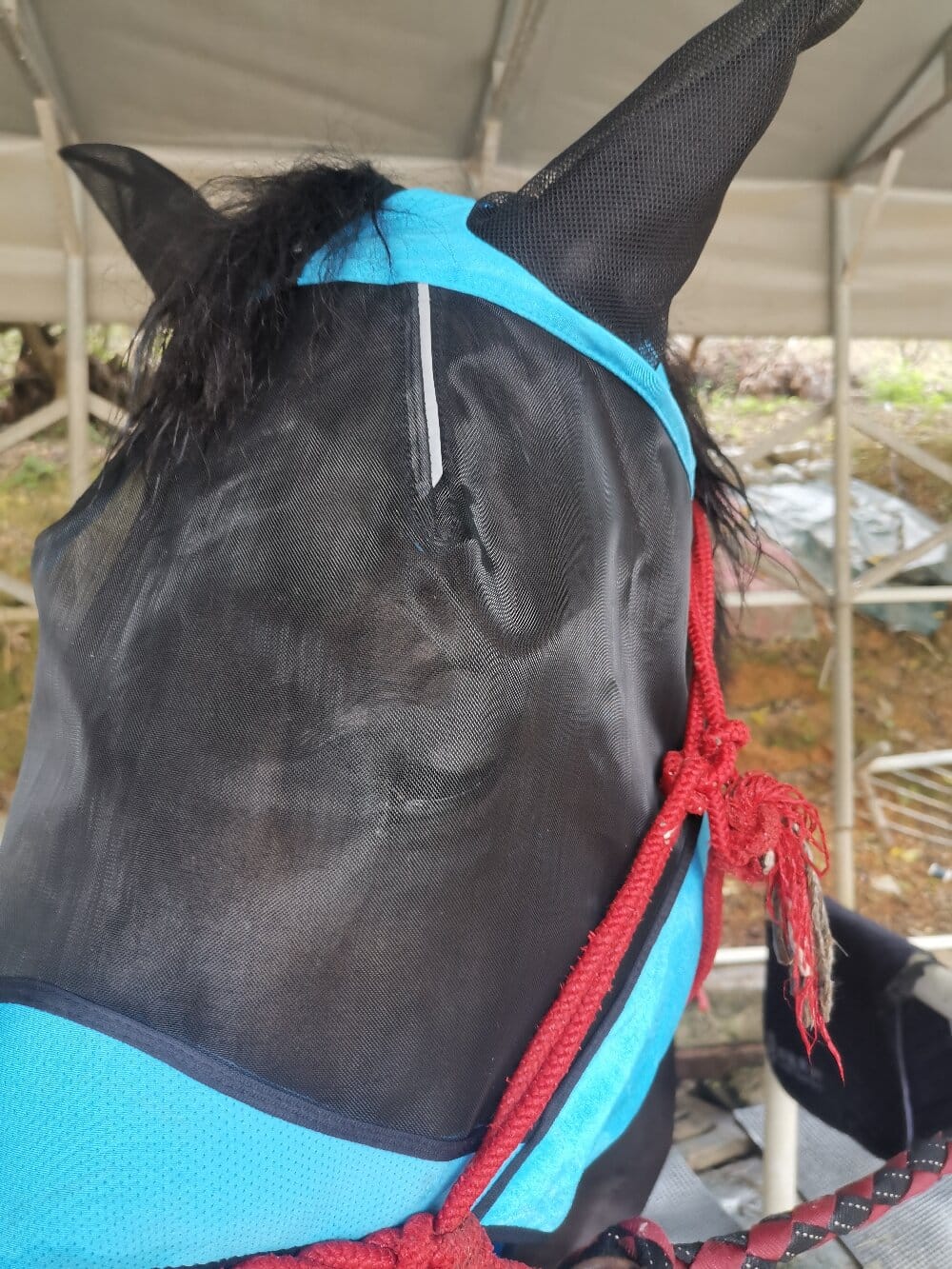A horse fly mask is an essential piece of equestrian gear designed to protect horses from irritating and potentially harmful insects. Flies, mosquitoes, and other pests can cause discomfort, stress, and even infections in horses, making protective measures crucial. Whether you own a competition horse, a trail companion, or a pasture pet, understanding the benefits and types of fly masks can help you make an informed decision for your equine friend.
The Problem: Why Flies Are More Than Just a Nuisance
Flies are not merely annoying—they pose real health risks to horses. Persistent biting insects can lead to:
- Eye infections: Flies carry bacteria that can cause conjunctivitis and other ocular issues.
- Skin irritation: Constant biting can result in sores, allergic reactions, and dermatitis.
- Stress and distraction: Horses bothered by flies may become agitated, affecting their performance and behavior.
Without proper protection, horses may rub their faces against fences or trees, risking further injury. A well-fitted fly mask is a simple yet effective solution.
Choosing the Right Horse Fly Mask: Key Considerations
Not all fly masks are created equal. Here are the factors to consider when selecting the best one for your horse:
- Material: Look for breathable, UV-resistant fabrics like mesh or polyester blends.
- Coverage: Some masks protect only the eyes, while others extend to the ears and muzzle.
- Fit: A secure but comfortable fit prevents rubbing and ensures the mask stays in place.
- Durability: Reinforced stitching and high-quality materials extend the mask’s lifespan.
Additionally, consider whether your horse needs a mask with UV protection for extended sun exposure.
Types of Fly Masks: Which One Suits Your Horse?
Fly masks come in various styles, each catering to different needs:
- Standard Eye Mask: Covers the eyes and forehead, ideal for general fly protection.
- Full Face Mask: Extends to the ears and muzzle, offering comprehensive coverage.
- Ear Cover Mask: Protects sensitive ears from biting insects and UV rays.
- Muzzle Guard Mask: Shields the nose and mouth, perfect for horses prone to sweet itch.
Assess your horse’s specific needs to determine the most suitable option.
Solving Common Fly Mask Challenges
While fly masks are highly effective, some horse owners encounter issues. Here’s how to address them:
- Mask Slippage: Ensure a snug fit and opt for masks with adjustable straps.
- Dirt Accumulation: Regularly clean the mask to prevent bacterial buildup.
- Horse Resistance: Gradually acclimate your horse to wearing the mask, starting with short periods.
Proper maintenance and patience can help overcome these challenges.
Beyond Fly Masks: Additional Protective Measures
While a horse fly mask is a primary defense, combining it with other strategies enhances protection:
- Fly repellent sprays: Apply equine-safe repellents for added insect deterrence.
- Stable management: Keep barns clean and use fans to reduce fly populations.
- Pasture rotation: Move horses away from stagnant water sources where flies breed.
A multi-layered approach ensures maximum comfort for your horse.
Conclusion: A Small Investment for Big Benefits
A horse fly mask is a simple yet invaluable tool for safeguarding your horse’s health and well-being. By understanding the risks posed by flies, selecting the right mask, and addressing common challenges, you can provide your equine companion with much-needed relief. Combined with other preventive measures, a quality fly mask ensures your horse stays happy, healthy, and free from insect-related stress.

